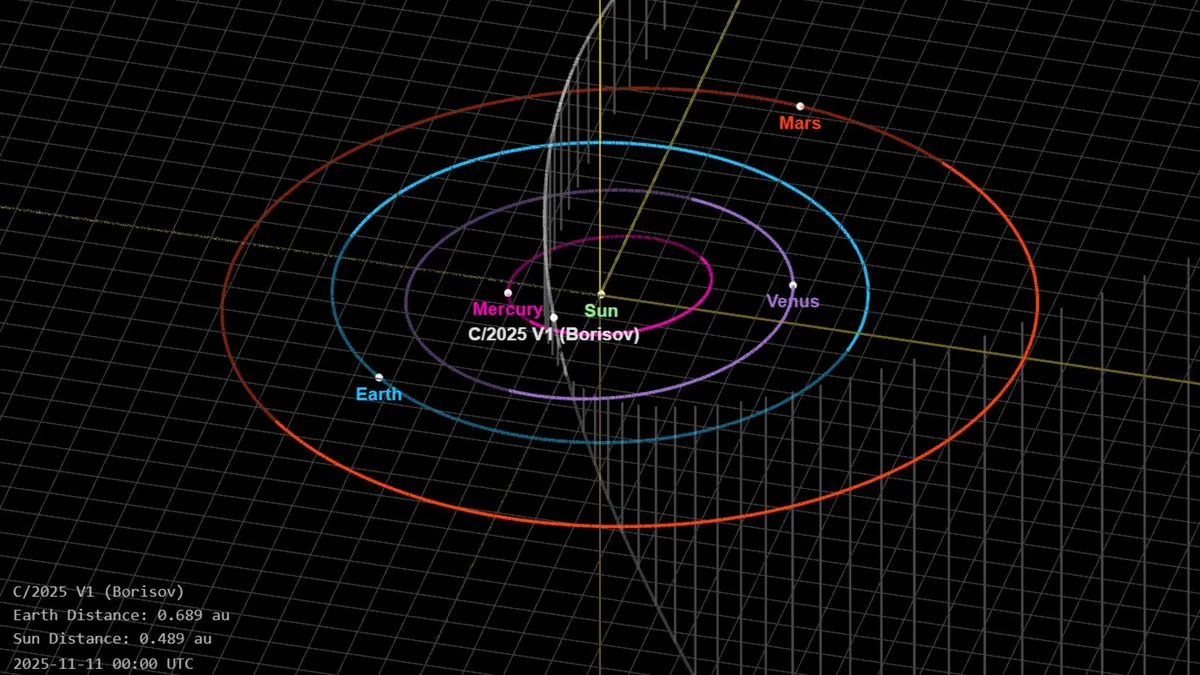
It is a well-known principle that as one moves away from the equator, climate temperatures typically decrease. However, this trend does not hold true for all regions. Take for instance Western Europe; cities like New York City and Madrid are located on nearly the same latitude, yet Madrid enjoys an average January temperature that is ten degrees Fahrenheit (approximately 5.6 Celsius) warmer than that of New York City. The intriguing explanation for this phenomenon lies in a complex network of warm ocean currents known as the Atlantic Meridional Overturning Circulation (AMOC).
The AMOC plays a crucial role in maintaining Europe’s temperate climate, but alarming signs of its weakening suggest that it could face a potential collapse within this century. This shift could have devastating consequences on global weather patterns and climate stability. To delve deeper into this pressing issue, you can read the full story here.
Hello, science enthusiasts! We bring exciting news regarding a newly discovered comet. Introducing C/2025 V1 (Borisov), which is distinct from Comet 3I/ATLAS, and is set to make its closest flyby of Earth today. This comet, unlike its interstellar counterpart, is believed to originate from the Oort cloud—a spherical shell of icy debris surrounding our solar system.
C/2025 V1 is characterized by its high eccentricity and a tail that seems to be fading away. As we anticipate its closest approach, it’s essential to note that while this comet shares some similarities with 3I/ATLAS, it is not an interstellar object. Discover more about this fascinating cosmic visitor in our full story here.
In a significant public health update, Canada has officially lost its measles elimination status due to a consistent rise in cases over the past year. This disease, which can be deadly, claims the lives of 1 to 3 out of every 1,000 infected children. Those who survive may endure serious long-term effects, including immune amnesia and permanent brain damage.
Fortunately, effective vaccines for measles exist that can prevent the disease and its severe repercussions. However, vaccination rates are declining, leading to increased cases of measles across Canada and reflecting a global trend fueled by rising anti-vaccine sentiments and disruptions caused by the COVID-19 pandemic. The United States has also observed similar declines in routine vaccinations, prompting concerns over its own measles elimination status. Read more about this pressing health issue here.
As we explore the universe, recent findings from the Euclid and Herschel telescopes suggest that star formation in our cosmos may have peaked. These telescopes have provided the most comprehensive temperature readings yet, revealing that galaxies have cooled as their star formation rates have declined over the last 10 billion years. This trend implies that the universe is on a path toward eventual quenching.
While this realization might spark existential thoughts, the timeline for such cosmic changes stretches into the far future, allowing humanity ample time to contemplate our place in the universe. For more details on this fascinating topic, read the full story here.
The opening ceremony of COP30 has officially commenced in Belém, Brazil, marking a pivotal moment in the global fight against climate change. During the ceremony, Simon Stiell, the UN Climate Change Executive Secretary, emphasized the advancements made since the Paris Agreement was signed a decade ago. However, he warned that we are still on track to exceed the crucial 1.5 degrees Celsius target.
Stiell urged for accelerated action in reducing emissions and enhancing resilience, stating, “The science is clear: we can and must bring temperatures back down to 1.5C after any temporary overshoot.” Despite the urgency, many world leaders, including notable figures from the three biggest emitting countries, have chosen not to attend this year's conference. For further insights on COP30, watch the opening ceremony here.
In case you missed it, here’s a recap of significant science news from the weekend:
A powerful 6.9 magnitude earthquake struck the northern coast of Japan, fortunately causing no immediate injuries or damage. Health officials are investigating 13 cases of infant botulism across 10 states linked to a recalled baby formula. Blue Origin's New Glenn rocket launch has been delayed due to poor weather conditions. The last of the escaped lab monkeys in Mississippi has been successfully recovered.For more exciting updates and stories from the world of science, stay tuned with us!